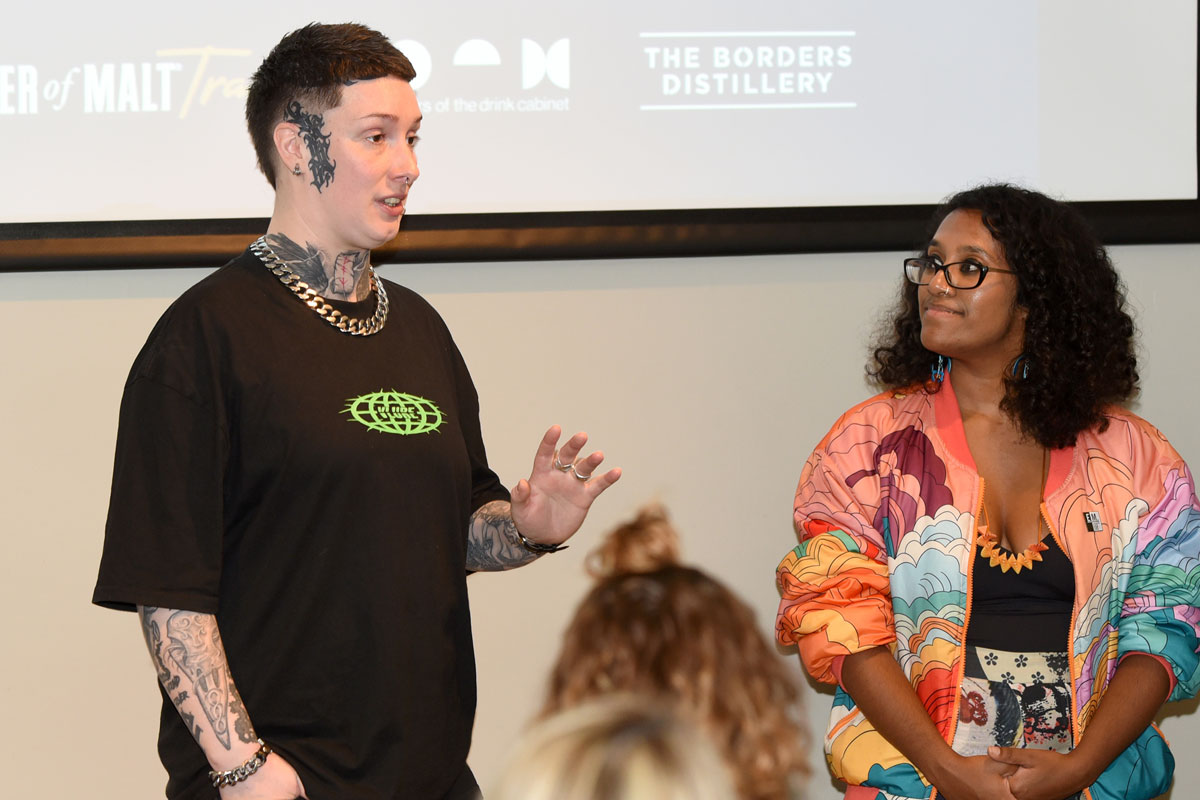
Creating inclusivity in Scottish venues
The importance of inclusivity in Scottish hospitality venues was the topic of SLTN’s second In Conversation event, held last month at Citation, Glasgow.
Following the success of the inaugural event last September – ‘Inclusivity in Whisky’ – SLTN returned to the topic of inclusivity, this time taking a broader view across the industry.
‘Inclusivity in Venues’ saw professionals from across Scottish hospitality gather to hear from expert speakers and discuss the challenges facing businesses looking to become more inclusive, as well as some ways that venues – and the wider industry – might be able to move forward.
The afternoon was hosted by SLTN and sponsored by The Borders Distillery, Master of Malt Trade and the Drink Cabinet.
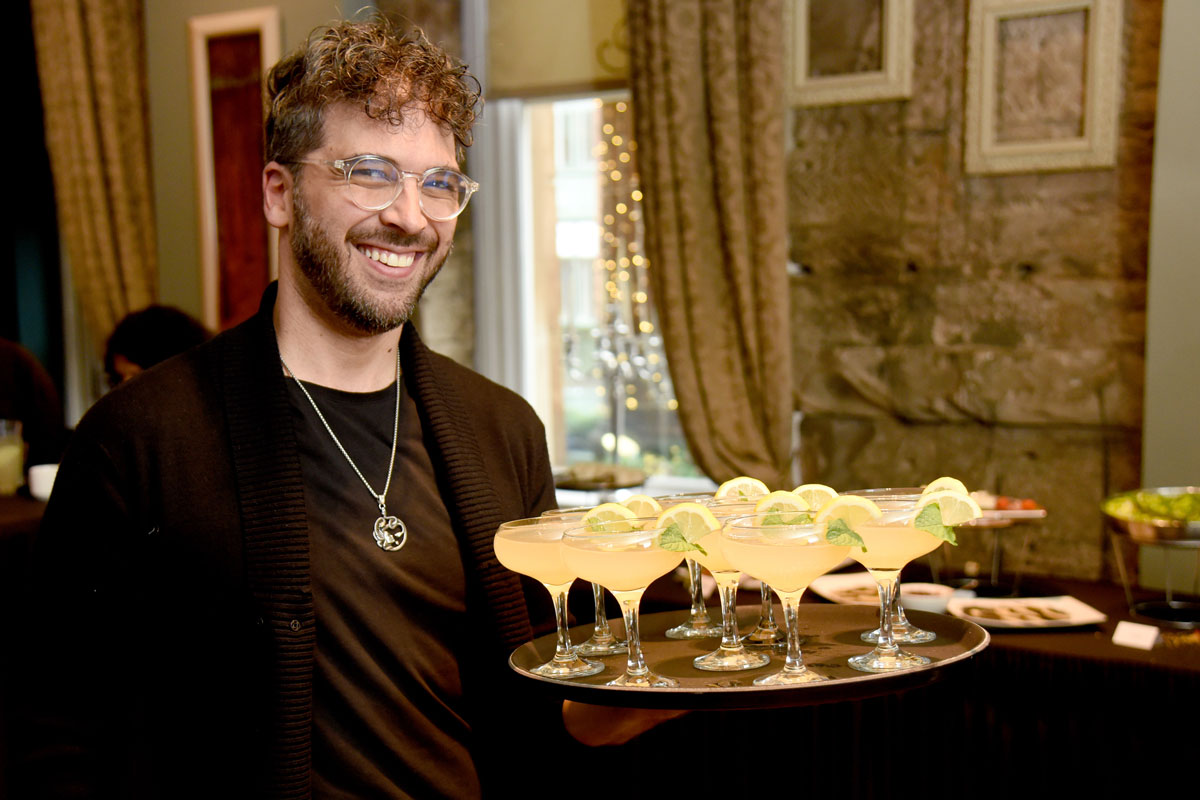
In addition to helping make the event possible, the sponsors also kept the debate stimulated, with The Borders Distillery providing The Borders Mule, featuring its Puffing Billy Steam Vodka, and Long & Sour, with the distillery’s Long & Short of It blended whisky, while Master of Malt Trade presented the Bathtub Gin Garden Punch and Rumbullion Old Fashioned.
The delicious drinks were all prepared and served by The Drink Cabinet.
“The aim of these events is to avoid all the old seminar clichés.”
Guests were welcomed by SLTN’s digital editor, Gordon Davidson, who said the aim of SLTN’s In Conversation events has been ‘to avoid the old business seminar cliché of a bunch of suits up here, talking at length, while the audience sleeps off its lunch and counts down a few more hours of continuous professional development’.
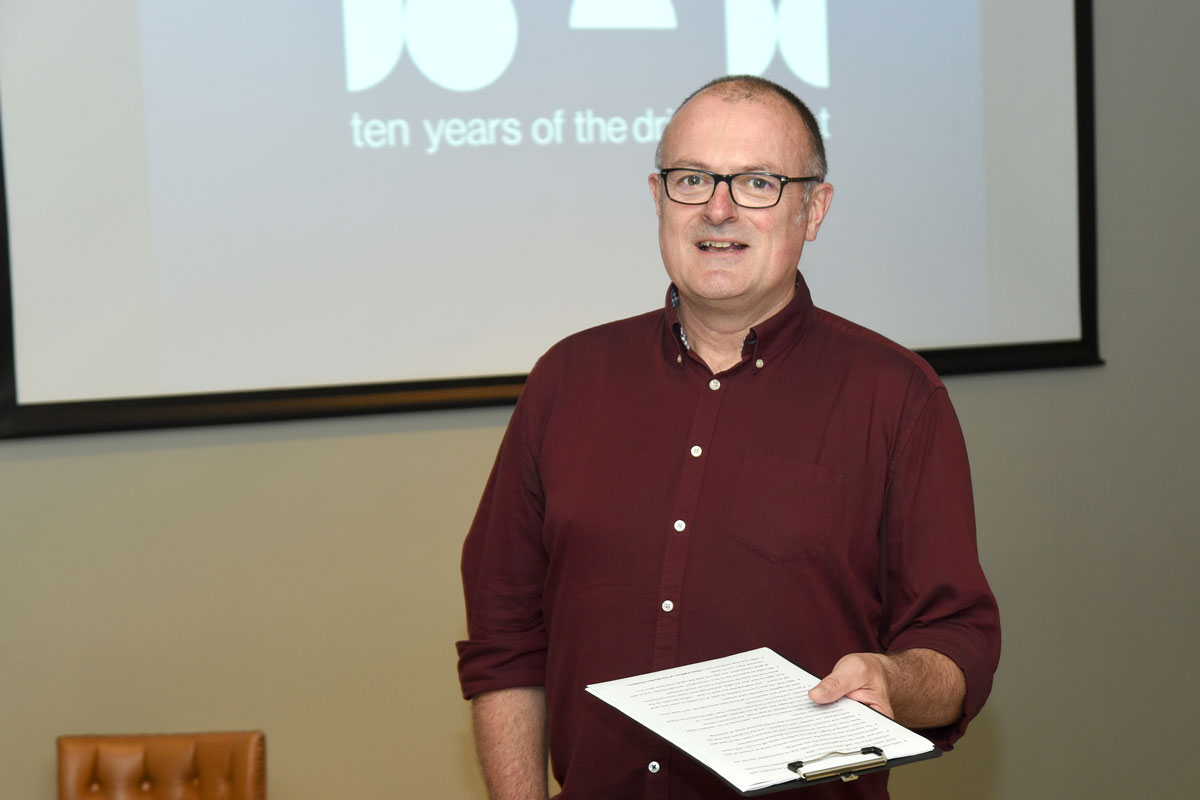
“Happily, at our first event, that aspiration was fulfilled, and we enjoyed a lively day of back and forth between our speakers and our guests – and the feedback was that we should gather again to discuss the practical detail of achieving inclusivity in our industry. So here we are.”
Olivia Pattison, marketing co-ordinator at The Borders Distillery, said the subject of inclusivity is close to the hearts of the Borders team.
“At The Borders, we are rooted in the tradition of bringing people together over exceptional spirits,” she said.
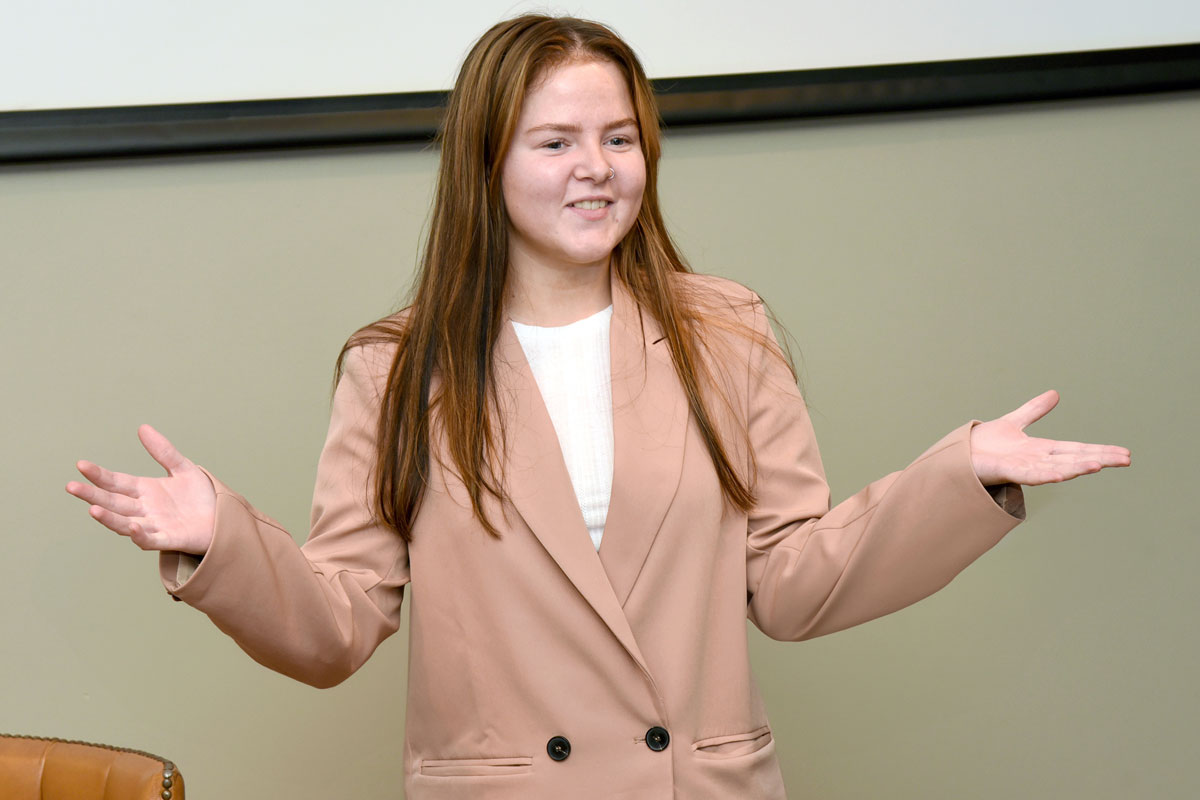
“But beyond that, we are committed to creating an environment where everyone feels valued and included, and so today’s discussions cover values that resonate deeply with us.
Creating welcoming spaces, whether in a distillery, bar, or any hospitality venue, is essential
“Creating welcoming spaces, whether in a distillery, bar, or any hospitality venue, is essential and while the journey toward true inclusivity is ongoing, events like this are really important to learn from others and collaborate.
“So I am really excited to be here today.
“I am eager to hear your experiences, insights, and practical steps that will help drive meaningful change across the entire industry.”
The gathered guests then heard from two expert speakers on the subject of inclusivity: Vicky Ilankovan of Equal Measures and Elyse Von Ruinn of The Gate.
Being as inclusive as possible can benefit staff retention as well as revenue
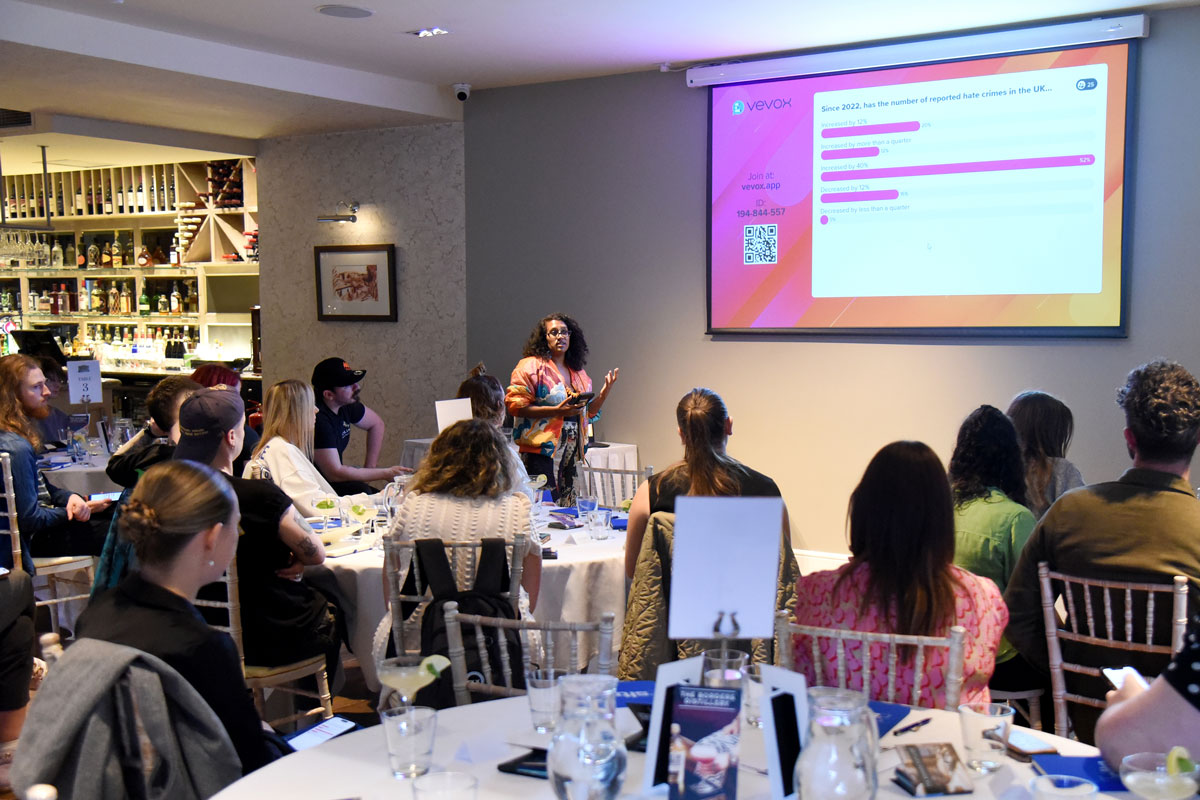
A key message emerged – at a time when reported hate crimes have increased across the UK, it’s never been more important for hospitality businesses to embrace diversity and inclusion.
Speaker Vicky helped to spell out the scale of the problem as she addressed the Glasgow audience.
An executive director of Equal Measures in London, she said one of the organisation’s goals is to help diversify the industry and increase representation at more senior levels.
“Hospitality in the UK, generally, is the second most diverse industry in the UK,” said Vicky.
“However, we do see across the country that when you get above mid-management, the net demographic becomes incredibly narrow and you do tend to see the same sort of person in those roles.
“So we’re looking to see – why is that? How can we change it? And then how can we work to make everyone feel that they can belong to this industry?”
That sense of belonging is important for both recruitment and staff retention.
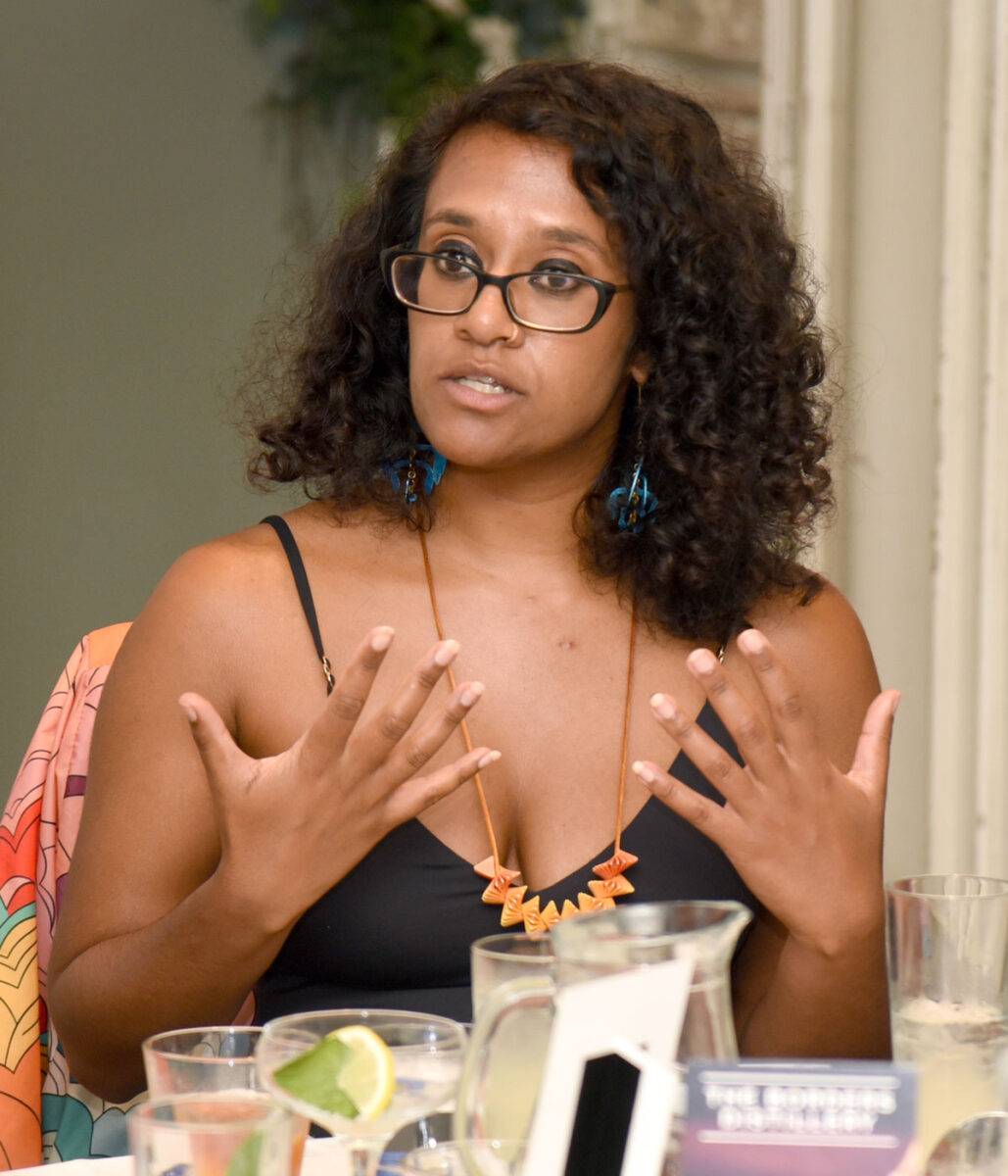
Vicky stated that 62% of hospitality respondents to a recent survey had said they would consider leaving their role if they felt their workplace was not committed to EDI (equity, diversity and inclusivity).
Inclusivity can have a real impact on a business’s bottom line, too.
“There are so many studies out there saying that if you activate EDI across any business it can increase your revenue by 33%,” said Vicky.
“I’m not saying we should do this because, ‘yay money!’ But it is something that I’ve come across, because people think about equity, diversity and inclusion as this fluffy subject. We should all be nice to each other.
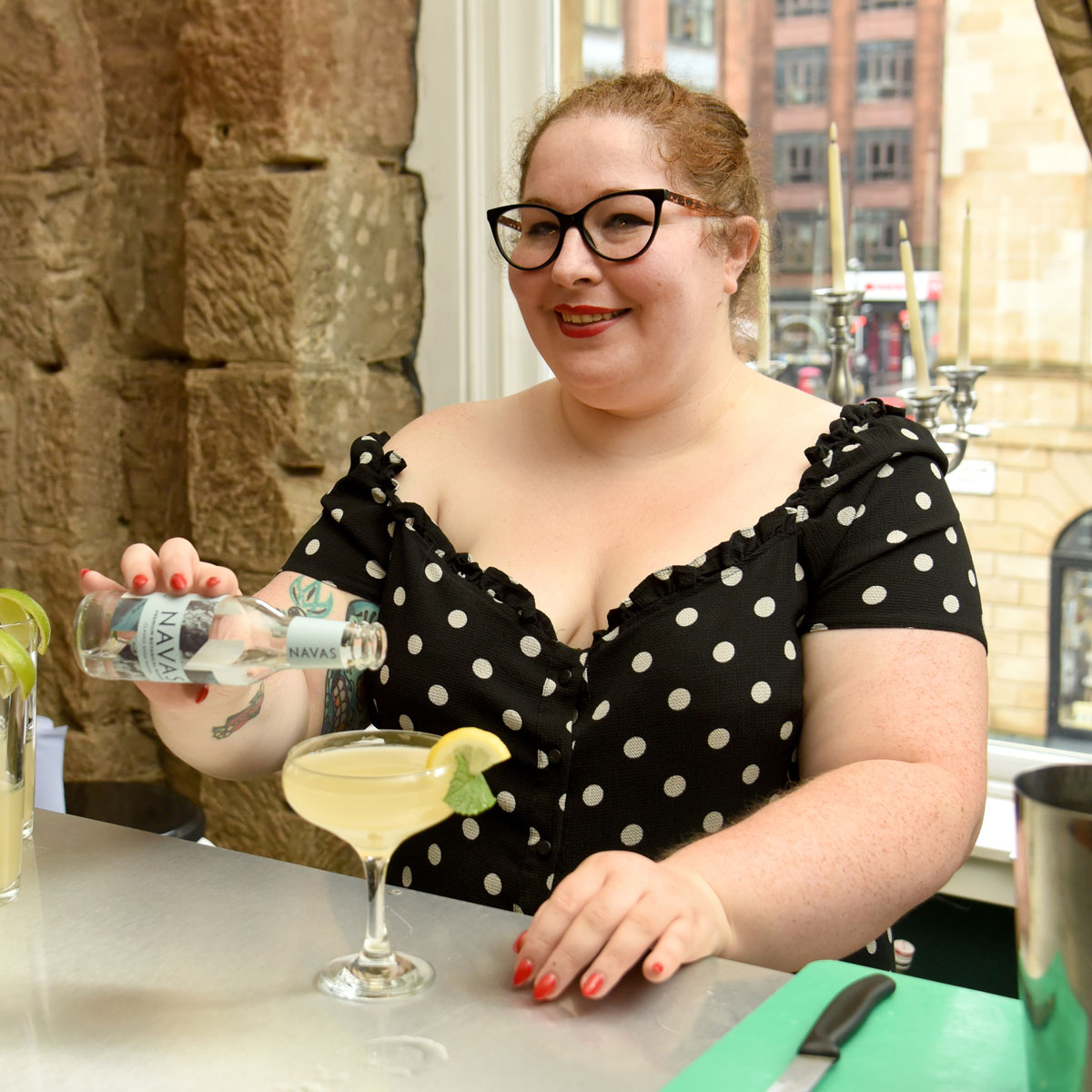
“Yes, we should. However, it’s not only that. There is so much data out there that it is so beneficial to your business.
“Increase in profitability, reduction in staff turnover, decrease in sick days. All these things.
“We’re in hospitality because we like people. We like engaging. It’s the same if your business engages with you and shows up for you. You’re going to want to stay.”
And being as welcoming as possible is just as important when it comes to customers.
Vicky was followed by award-winning Scottish bartender Elyse Von Ruinn of The Gate in Glasgow, who spoke about the importance of ‘intentional experience design’ in hospitality venues in order to be welcoming to as broad a range of customers as possible, regardless of age, ethnicity, gender, sexuality or disability.
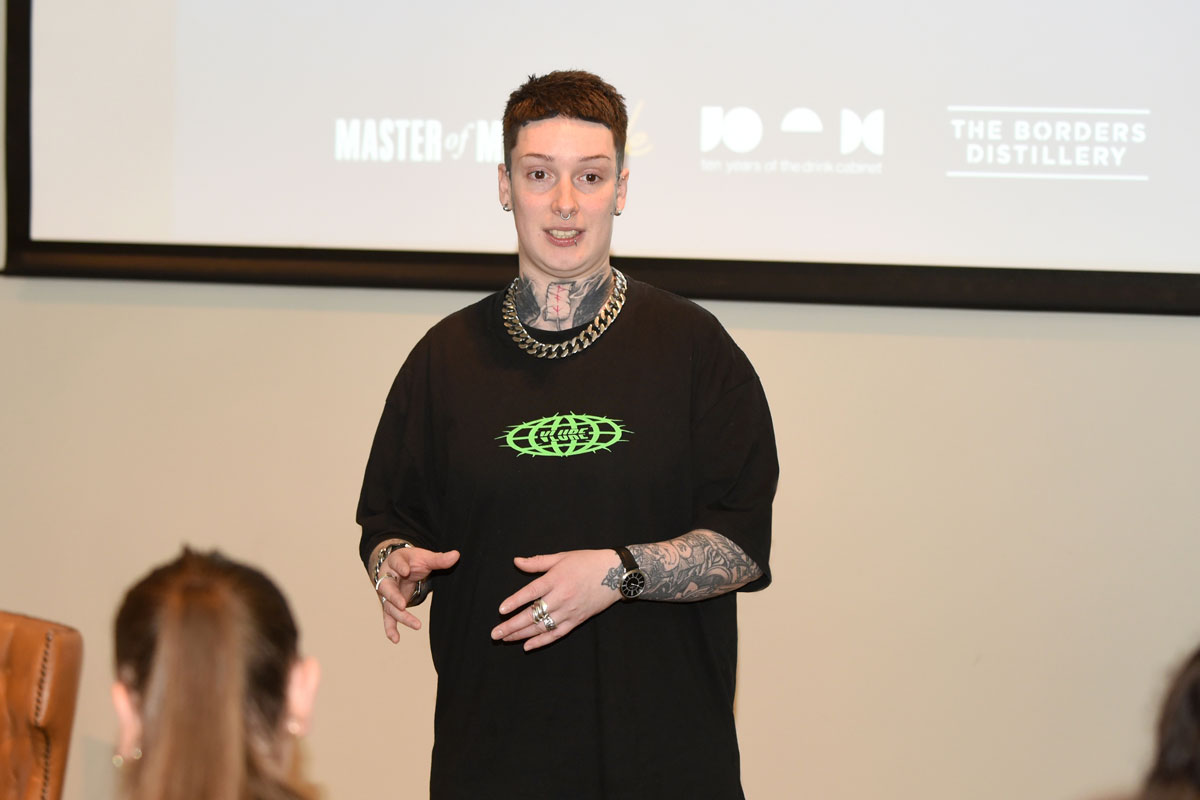
“A lot of what I have to say is about intentional experience design, and that comes from when your customer, your guest, is coming into the venue and before they’re leaving,” said Elyse.
“If you’re good at hospitality a lot of what I’ll tell you to do is just stuff that you’ll do naturally, but it’s being intentional about it – why you’re doing it and why that’s important to carry through.”
Practical examples of acting more inclusively included highlighting a venue’s accessibility on social media, and setting out to customers exactly what will be expected of them – and what to expect of staff – as soon as they arrive in an outlet.
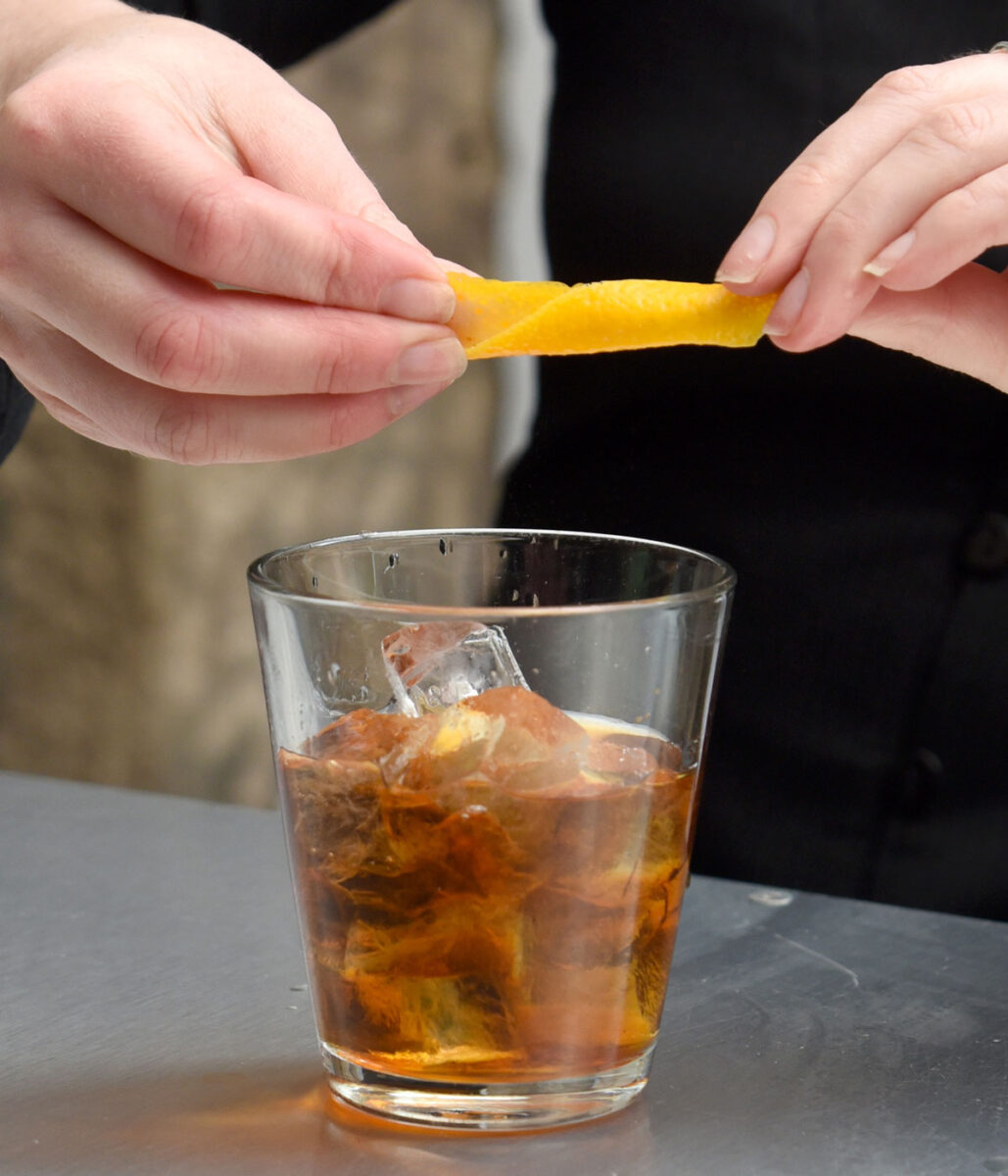
“This doesn’t just help people that are neuro-divergent,” said Elyse.
“It might also help shy people in your venue. Or people whose first language isn’t English. If you’re very clear with your instructions on what to expect, that’s alleviated any kind of second-guessing they might have to do. Maybe it’s the first time they’ve ever been to a really cool restaurant or cocktail bar.
“So you can alleviate any stress on what to expect from them, which has already made them so much more comfortable. It’s just about being really intentional about that.”
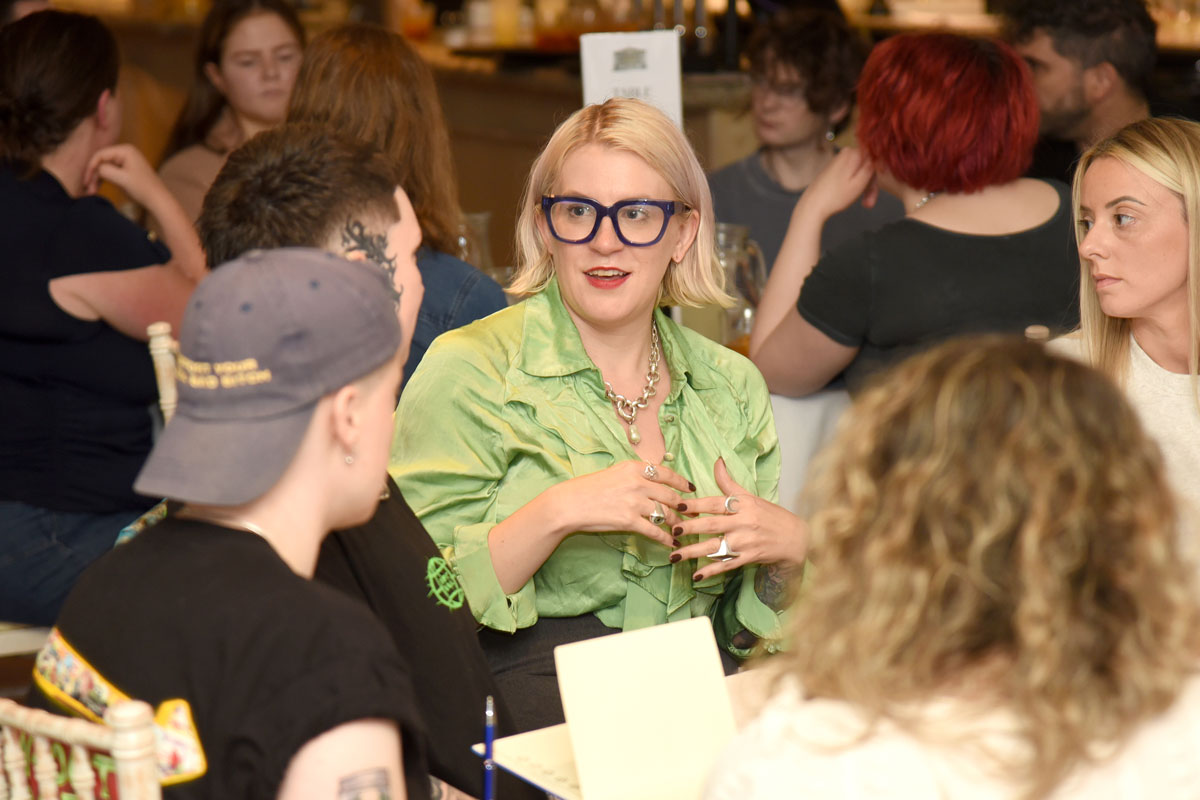
Inclusivity depends on communication between floor-level staff and managers
In the breakout session that followed the speakers, the recurring theme was that communication is key to creating truly inclusive hospitality venues – whether that be telling those above you in a company structure that a change is needed, or having proper conversations with staff that are under your care.
In particular, from a barstaff point of view, it can often be tricky getting higher levels of management to pay attention to concerns and insights arising at bar-level.
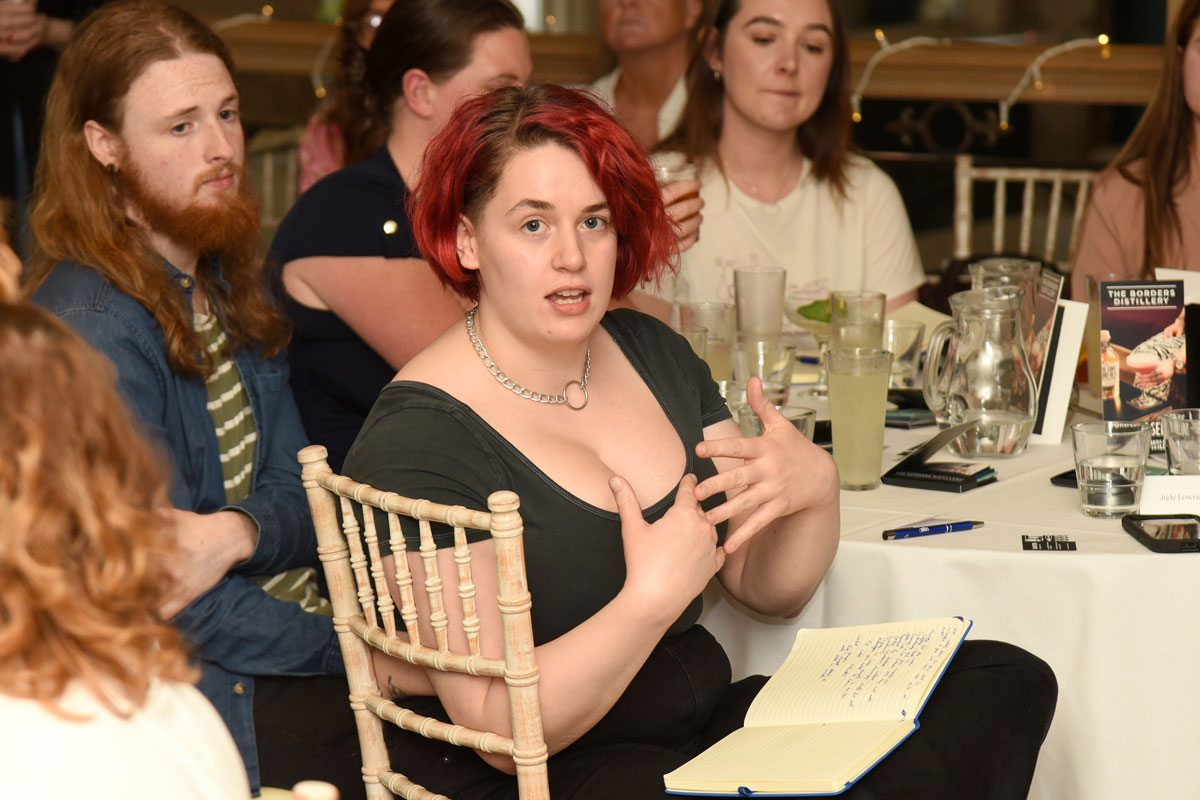
From Glasgow’s Daddy Marmalades, Kim Toft noted that many of the people high up in the bigger hospitality companies were simply ‘not arsed’ about inclusivity, as the areas where its absence might be causing problems were below their sightline.
‘Trying to get the people above you to care’ is sometimes the hardest thing when trying to make a business properly inclusive.
Zach Sapato of The Drink Cabinet – and founder of the HospoHang initiative – agreed that ‘trying to get the people above you to care’ is sometimes the hardest thing when trying to make a business properly inclusive.
“It is all about getting that top-down input, because there’s only so much you can do when you’re fighting against people. And when you’re trying to do too much yourself without the support of people above you, you can end up burning out. It’s hard to fight when no one’s working with you.”
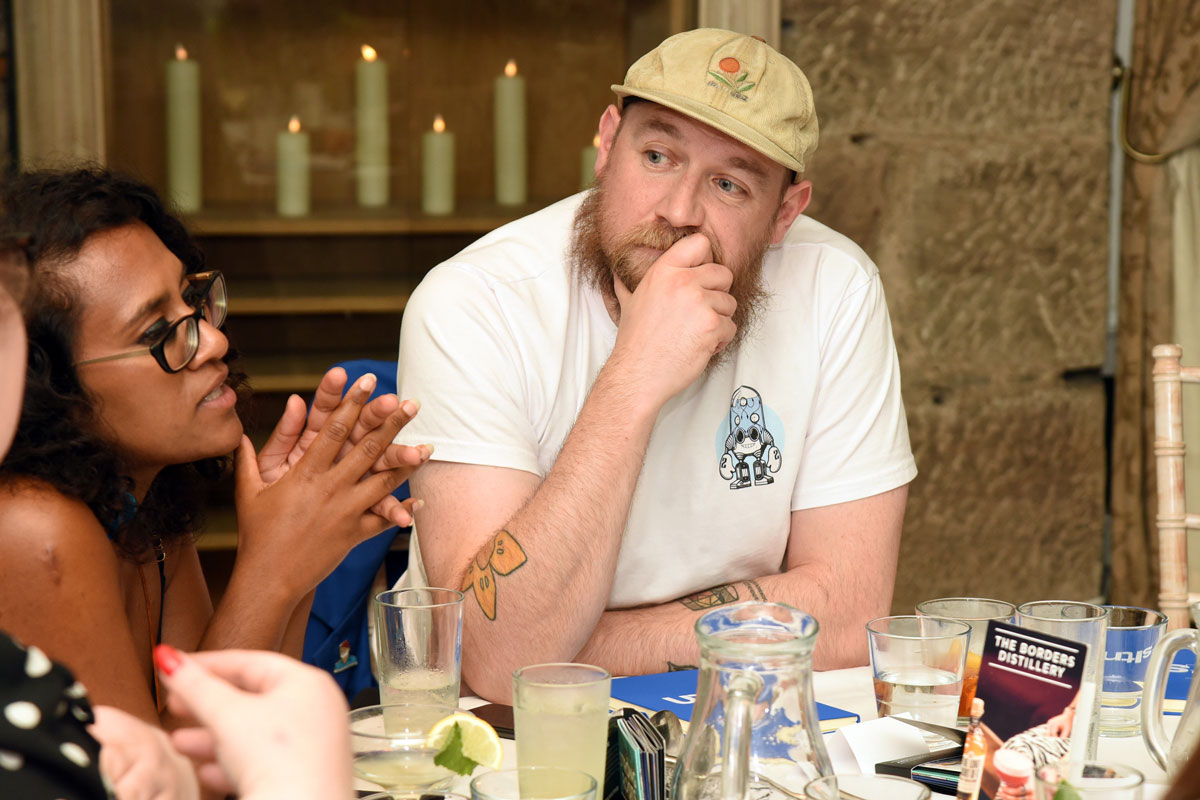
Speaker Vicky Ilankovan responded: “I read a stat out there saying that managers have more of an effect on your mental health than your spouse does. I think it’s incredibly important to understand how to get the best out of different people that work with you. I think anyone in management or higher should have specific management training within an equality, diversity and inclusion network.
“There needs to be an EDI policy that is structurally in place and that is very much a part of your business and that is visible – online on your website, social media, whatever – as well as part of your onboarding.
“That needs to be communicated heavily, because you need to make people aware of what the process is.
“Communication is key. Asking questions. Your team is your best resource, so asking what they want and what they need and what EDI looks like to them, and what they would find supportive, and then doing that.”
You have to listen. Encourage people to draw their own boundaries and to speak up about things they need or problems they have
Award-winning mixologist Mari Chierchia suggested that figuring out how to be a good manager often started by looking at what you don’t want to copy from previous generations.
“You have to listen. Encourage people to draw their own boundaries and to speak up about things they need or problems they have.”
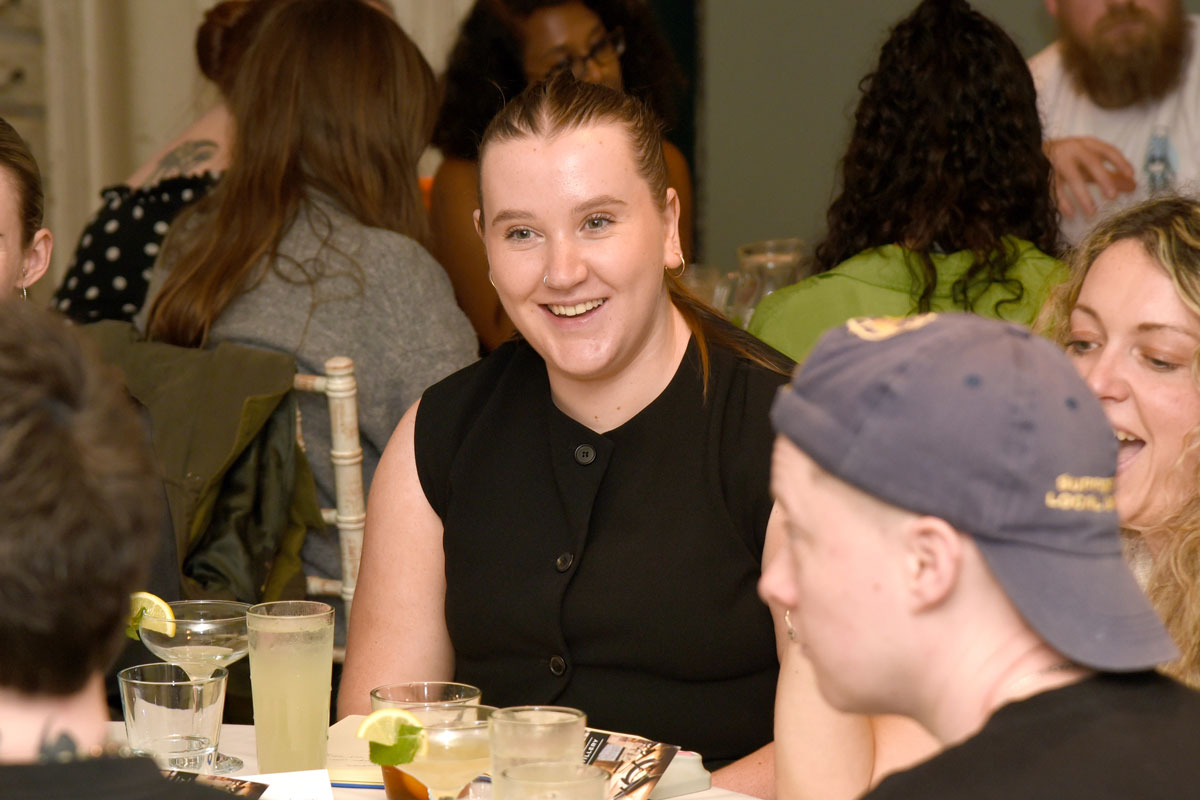
There was agreement from the floor that the industry would benefit from a recognised way of communicating which venues are doing things well in terms of inclusivity, and holding them up as places to emulate and celebrate.
“Calling out places that are doing badly isn’t really enough. Celebrating places that are doing well is probably an easier way to move forward.”




















